Up until recently, visitors to Tokyo mainly had the choice of business hotels, traditional ryokans, capsule hotels and Airbnbs, but now the trendy Trunk House and Hotel bring the boutique ‘lifestyle’ concept to Japan, with an integrated concept store, millennial wedding chapel and the country’s ‘smallest disco’. Emily Eastman reports
Opened in 2017, and a member of Design Hotels, the Trunk Hotel is a 15-room, art-filled guesthouse situated in the colourful Shibuya district – a cultural centre brimming with shopping, dining and nightlife, close to Harajuku.
It’s two new-build, four-floor, low-rise buildings have been designed by Mount Fuji Architects Studio. Interiors are deliberately inviting to attract a crowd of stylish, hipster types from the nearby community who can come and work, eat and shop, making Trunk Hotel an unusual proposition for Japan, which usually sees hotels as places for travellers or special occasions such as weddings (there is a chapel on the roof). 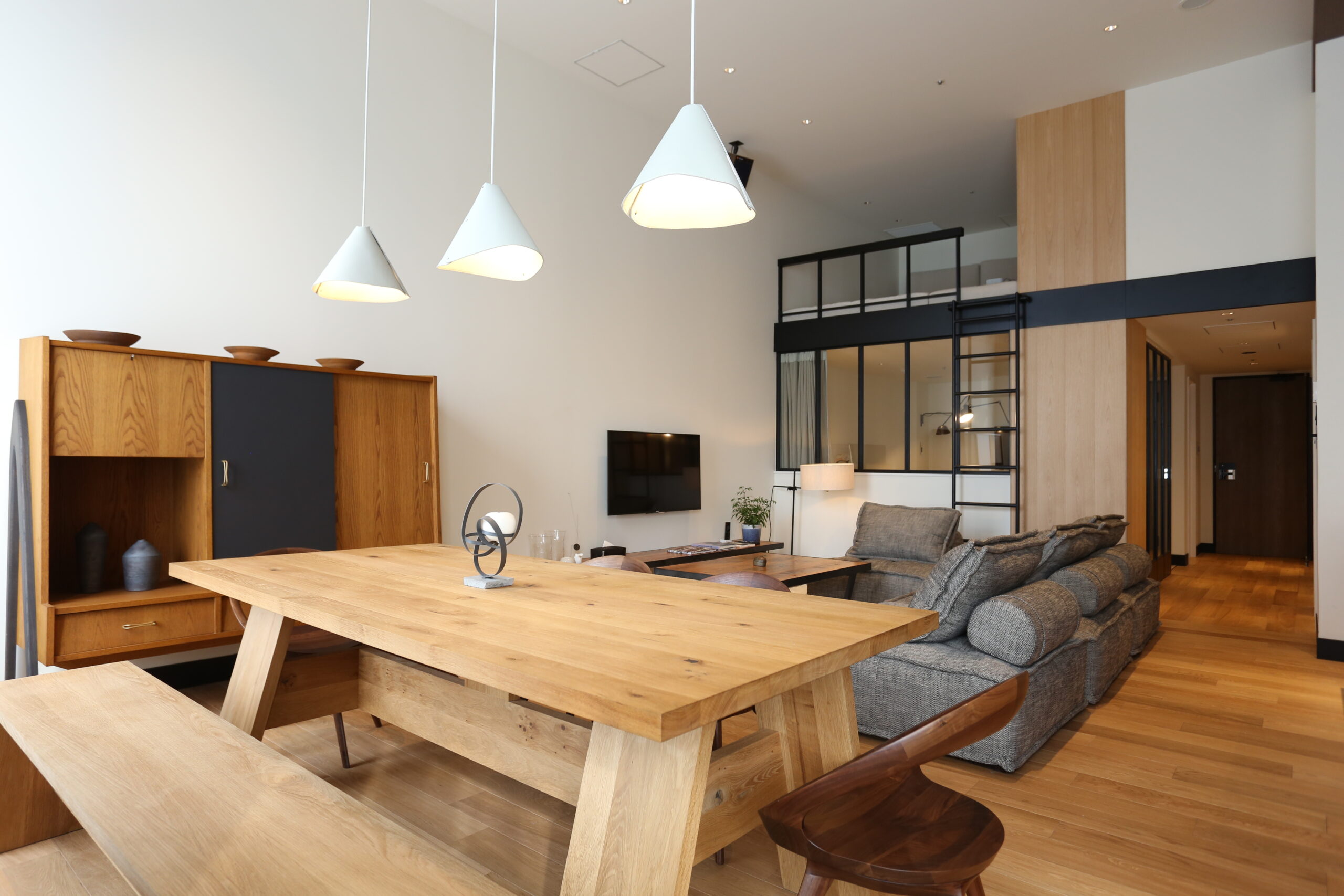 Conceived by Japanese designers Jamo Associates, the hotel is low-key, minimalist luxe. Some of the rooms (there are 11 rooms and four suites) come with record players and even movie projectors, while others have mezzanines to maximize space, original furniture made by local artisans and balconies. All have minibars stocked with local food and drink.
Conceived by Japanese designers Jamo Associates, the hotel is low-key, minimalist luxe. Some of the rooms (there are 11 rooms and four suites) come with record players and even movie projectors, while others have mezzanines to maximize space, original furniture made by local artisans and balconies. All have minibars stocked with local food and drink. 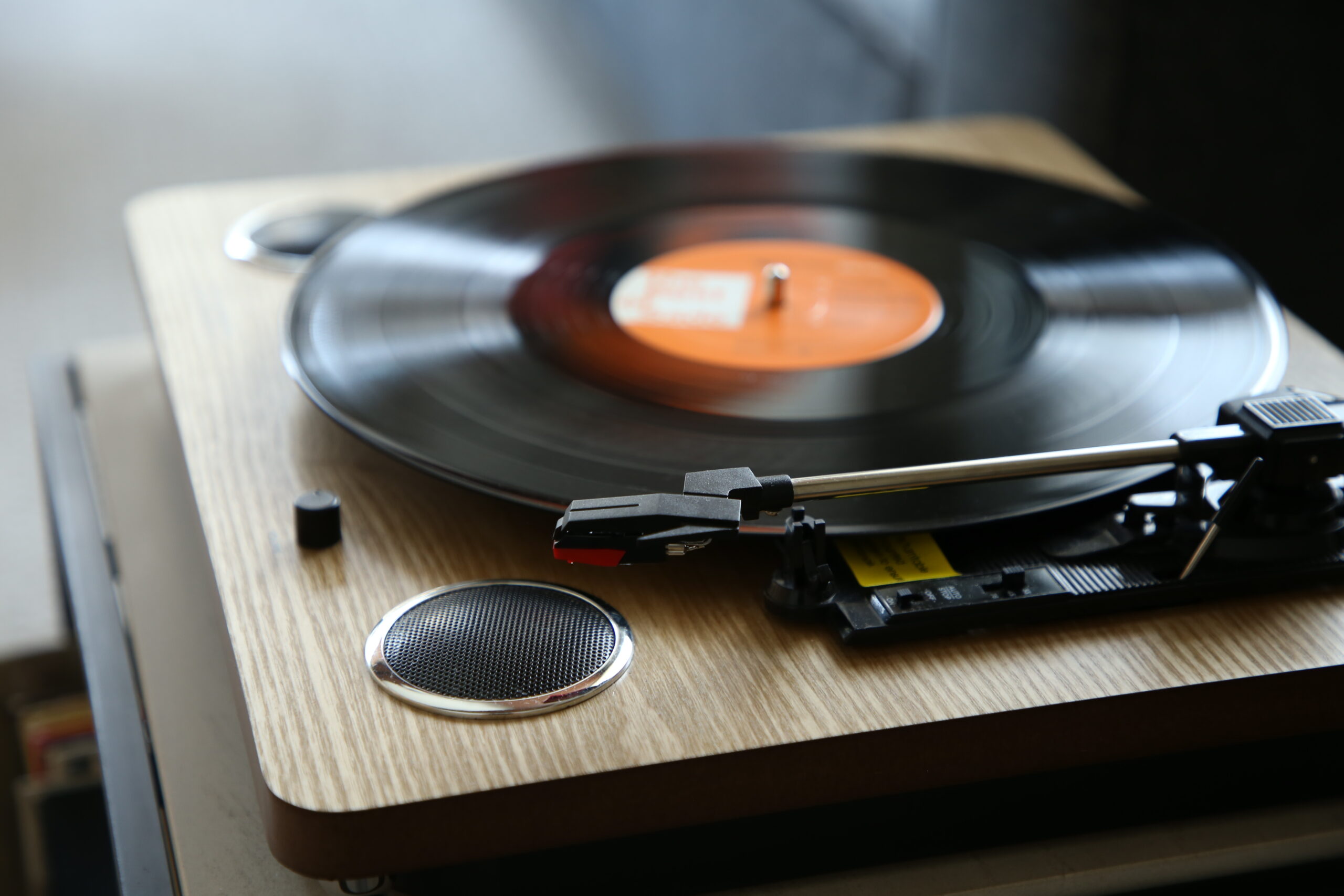
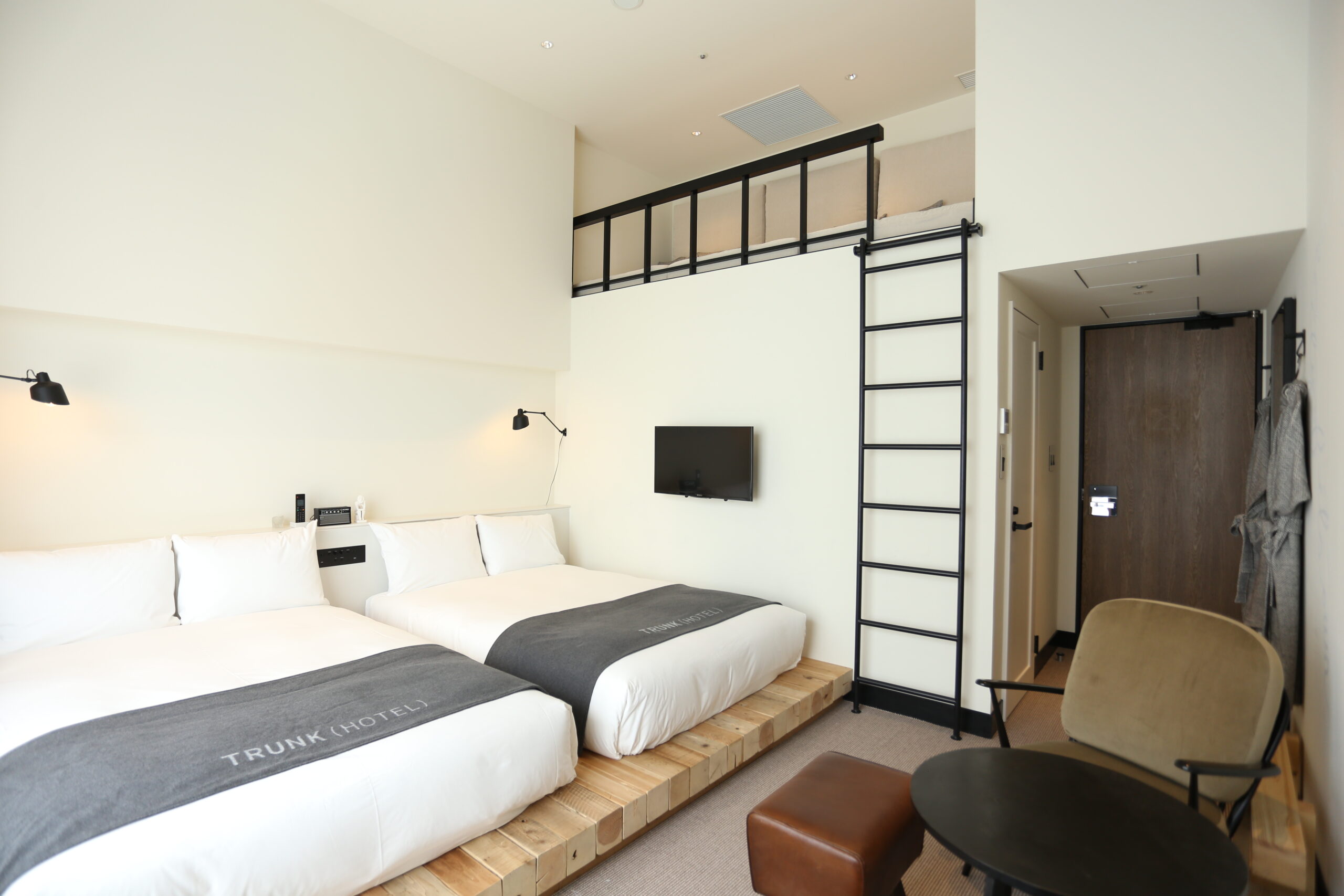
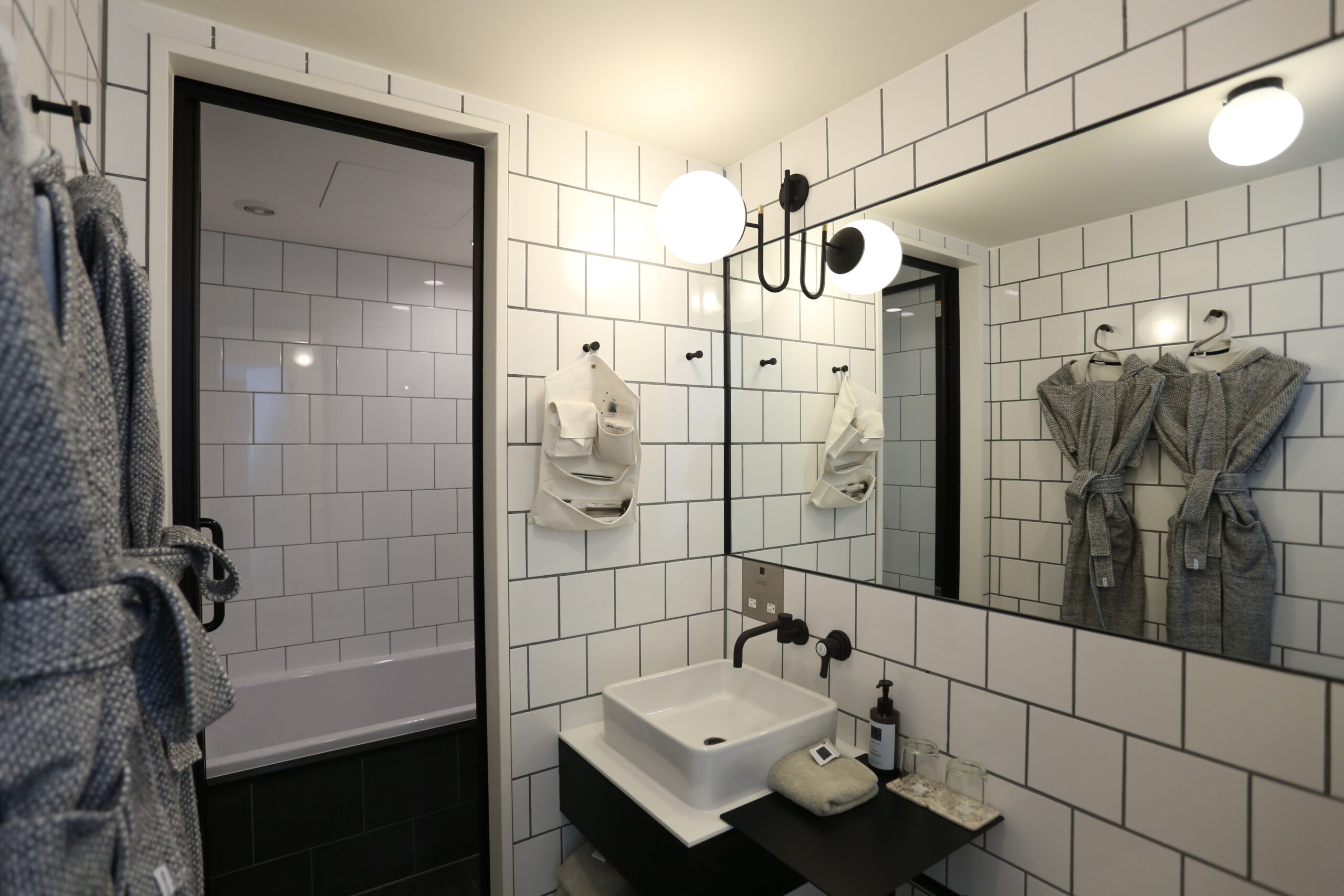 Meanwhile, the on-site Trunk Store sells ethical products such as organic bento lunch boxes, T shirts, flip flops and body wash.
Meanwhile, the on-site Trunk Store sells ethical products such as organic bento lunch boxes, T shirts, flip flops and body wash.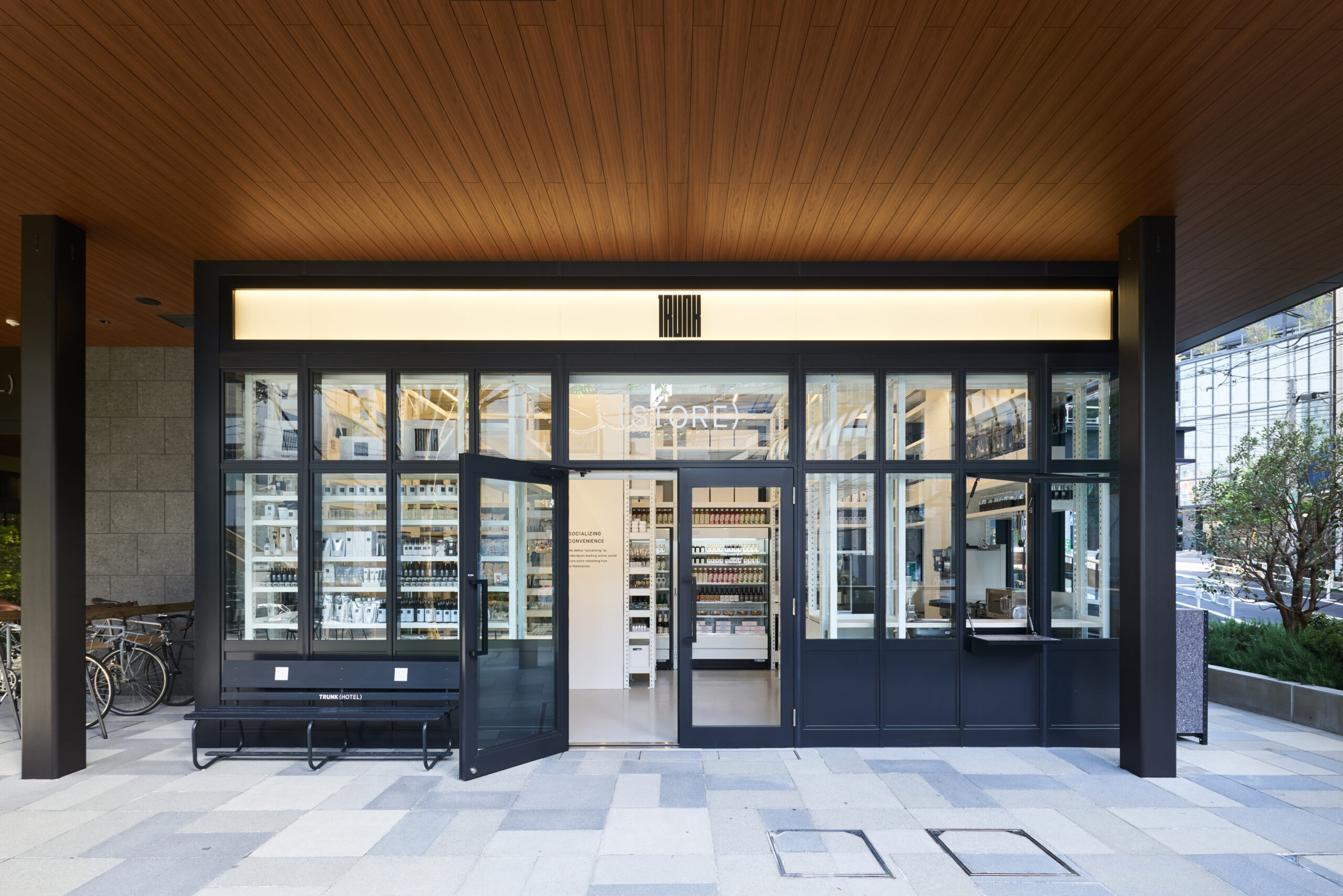
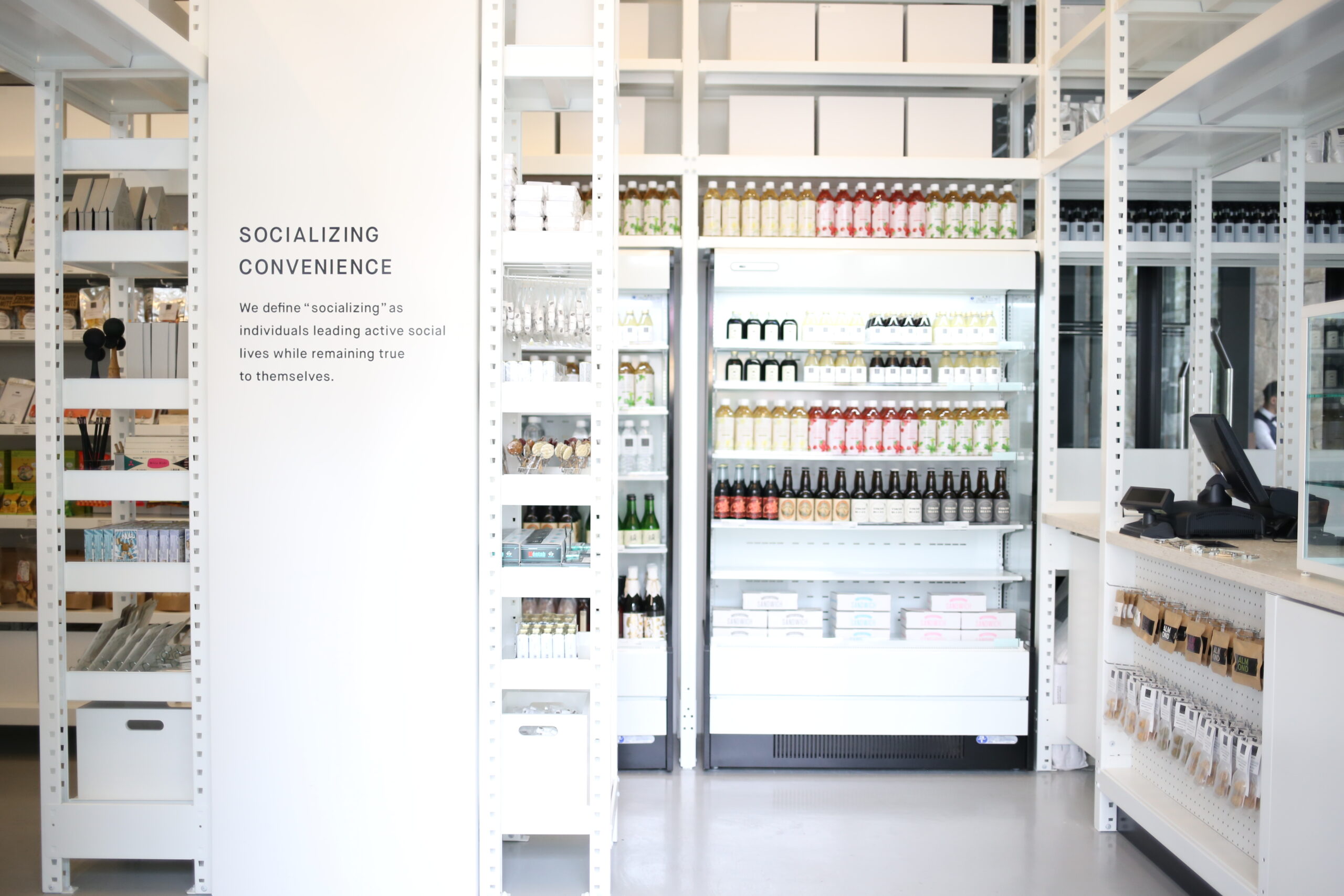 The Trunk Hotel is about creating a lifestyle for guests, an environment in which they can relax, work and socialise with ease.
The Trunk Hotel is about creating a lifestyle for guests, an environment in which they can relax, work and socialise with ease.
The lounge is a public space where both Japanese residents and guests from overseas can come together – throughout the week there are workshops and events scheduled, and coffee is served in porcelain mugs made from recycled clay. Walls are decorated with local art and the bar serves local drinks such as Ogasawara rum and Hoji-cha tea.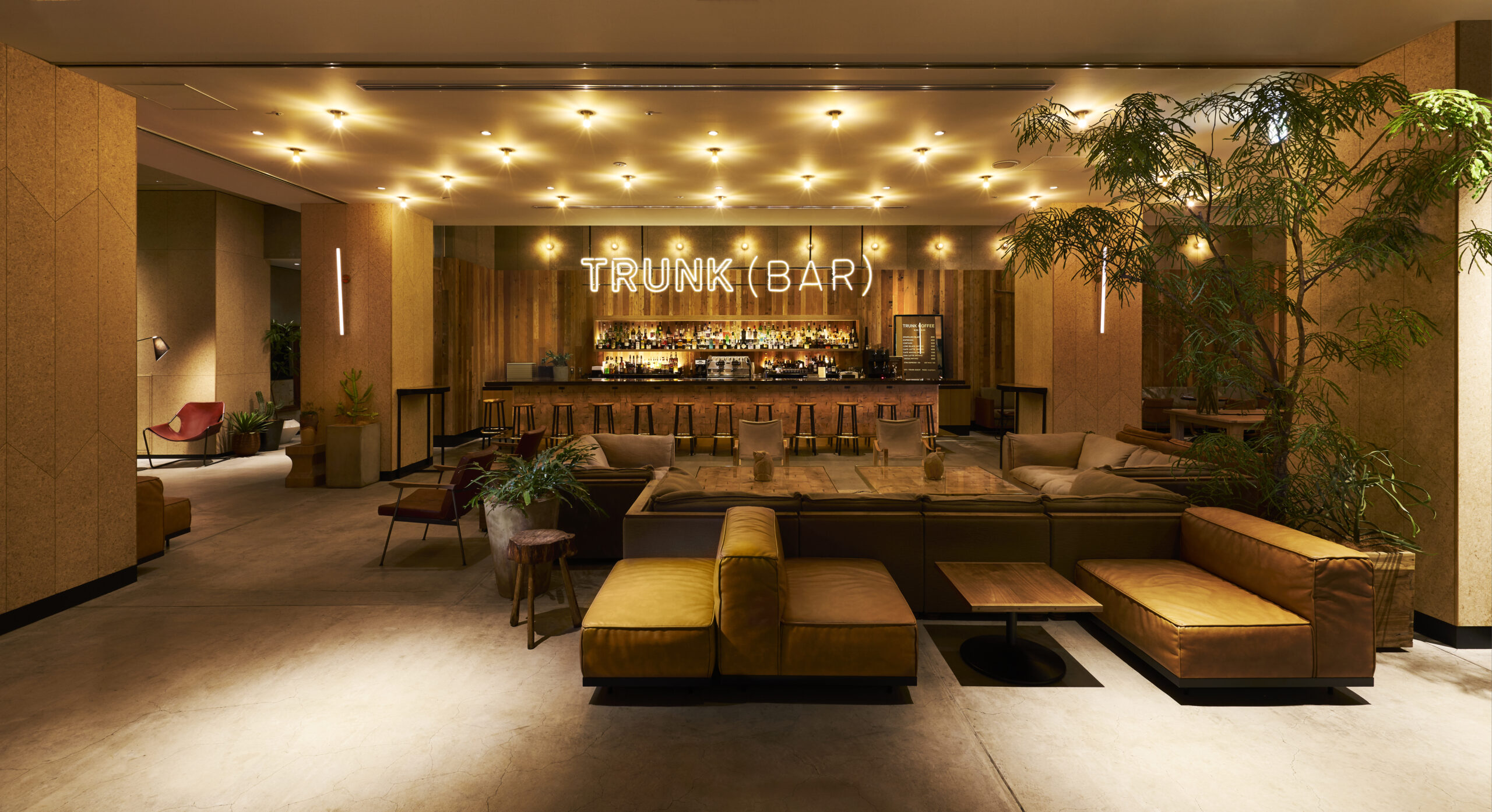 All-day dining, meanwhile, is available at Trunk Kitchen, which serves traditional meals of “one soup and three dishes”, as well as healthy seasonal menus. There is also Trunk Kushu, which specialises in Japanese skewers, although reservations are hard to get.
All-day dining, meanwhile, is available at Trunk Kitchen, which serves traditional meals of “one soup and three dishes”, as well as healthy seasonal menus. There is also Trunk Kushu, which specialises in Japanese skewers, although reservations are hard to get. 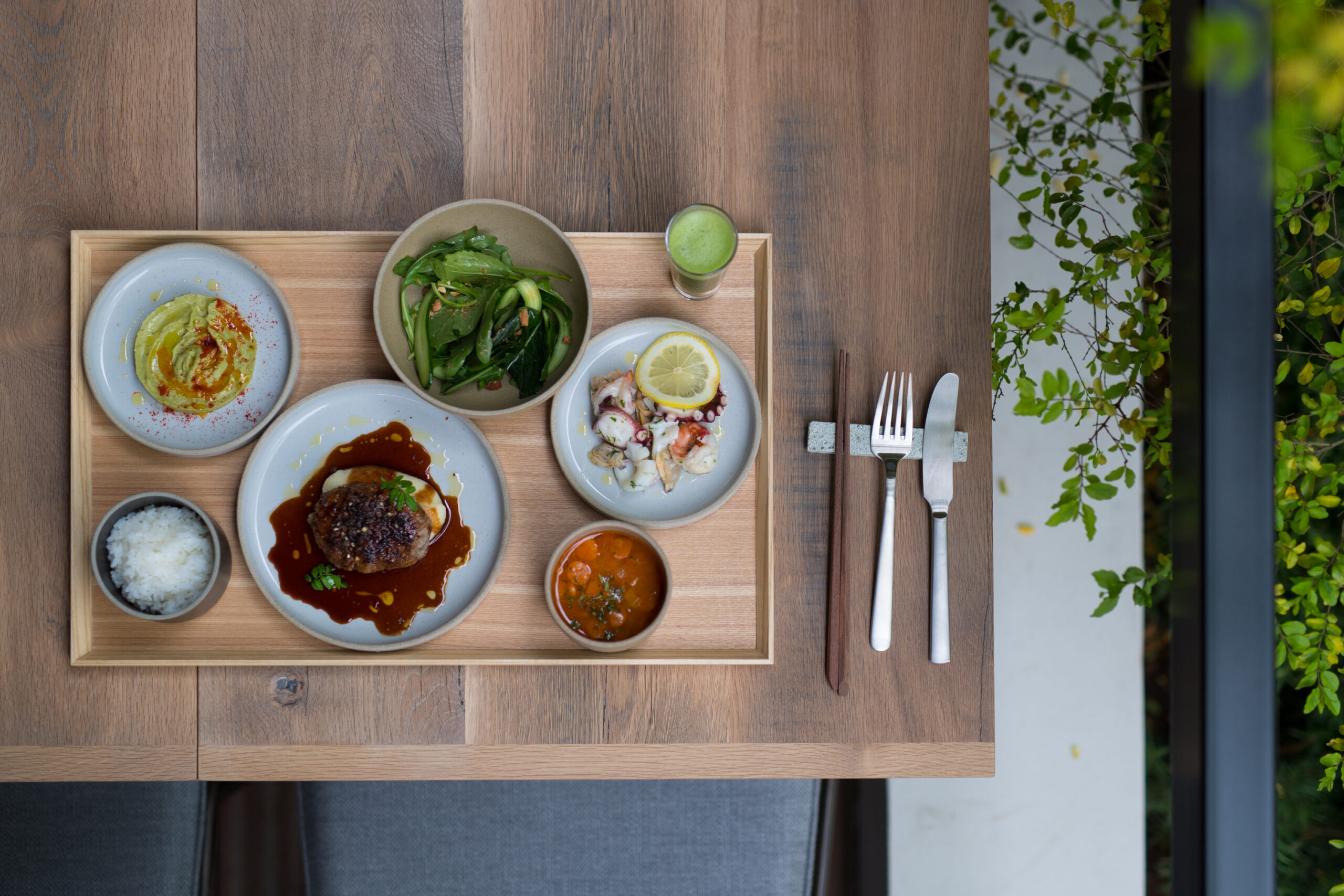
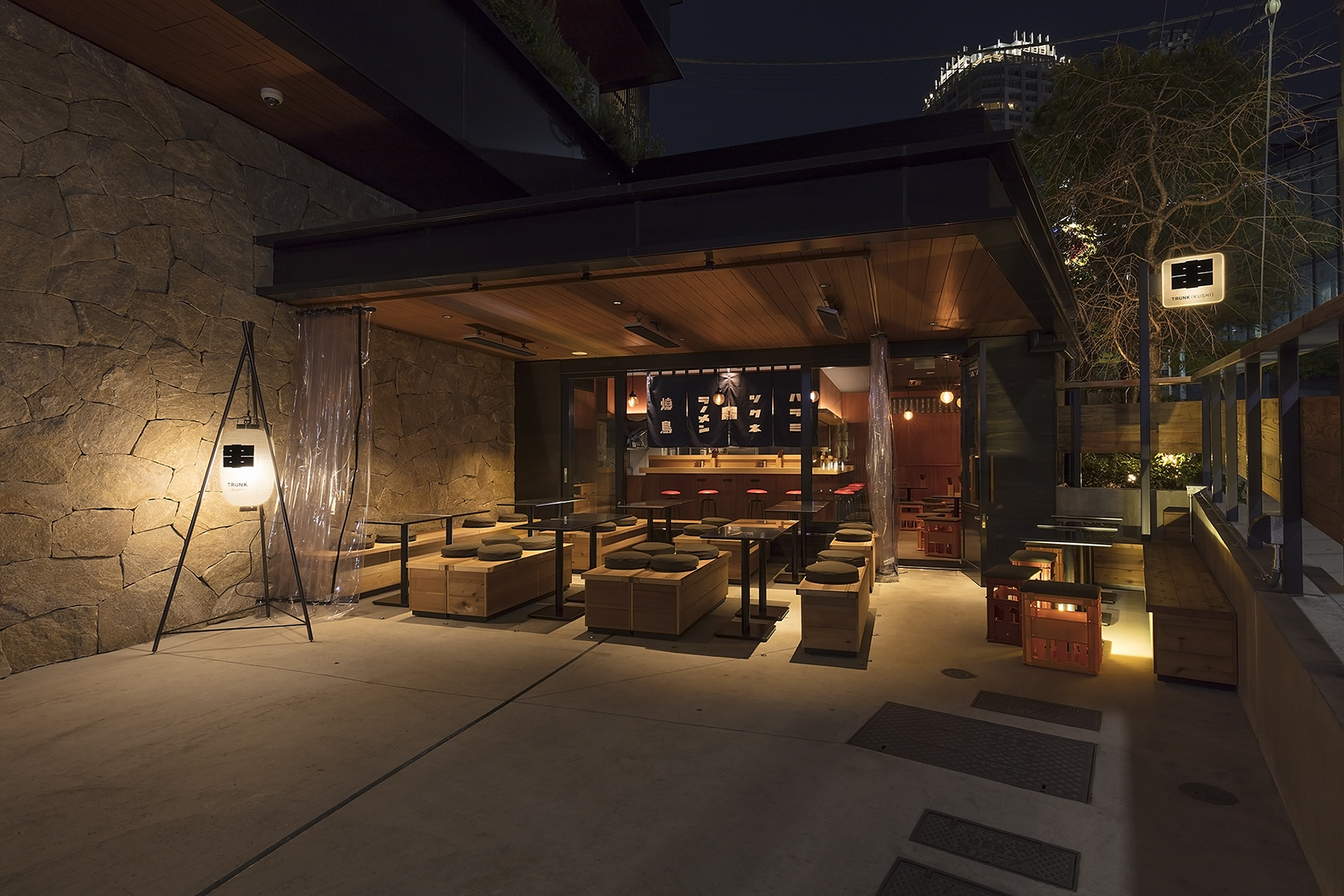 Hiroe Tanaka, creative director of the Trunk Hotel told Dezeen: “In Japan, the concept of a boutique hotel didn’t really exist. There were only luxury or business hotels in Japan. So, for us, creating a completely new type of hotel was important. We wanted to create a hotel that is accessible to the people of the town and will attract a wide range of guests.”
Hiroe Tanaka, creative director of the Trunk Hotel told Dezeen: “In Japan, the concept of a boutique hotel didn’t really exist. There were only luxury or business hotels in Japan. So, for us, creating a completely new type of hotel was important. We wanted to create a hotel that is accessible to the people of the town and will attract a wide range of guests.”
Trunk House
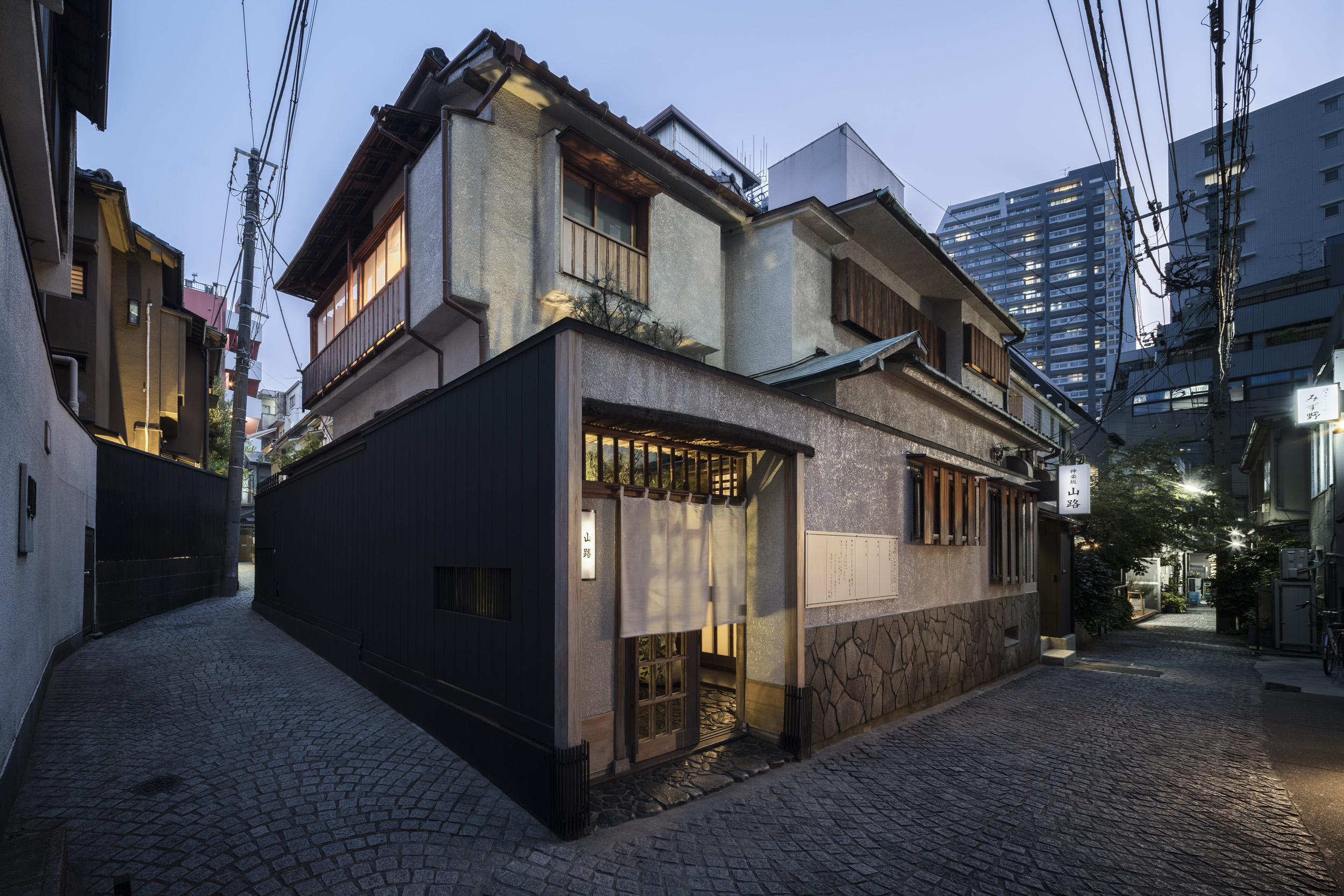 When Yoshitaka Nojiri and his team of designers took ownership of a 70-year-old former geisha house in Tokyo’s Kagurazaka neighbourhood last year, the Trunk Hotel founder was able to expand his lifestyle hotel concept.
When Yoshitaka Nojiri and his team of designers took ownership of a 70-year-old former geisha house in Tokyo’s Kagurazaka neighbourhood last year, the Trunk Hotel founder was able to expand his lifestyle hotel concept.

At the heart of Trunk House is the notion of “Tokyo salon”, a reference to the myriad salons that permeated the city in the 17th and 18th centuries. In these spaces, artists and academics would come together to debate and discuss the issues shaping Tokyo’s cultural landscape. 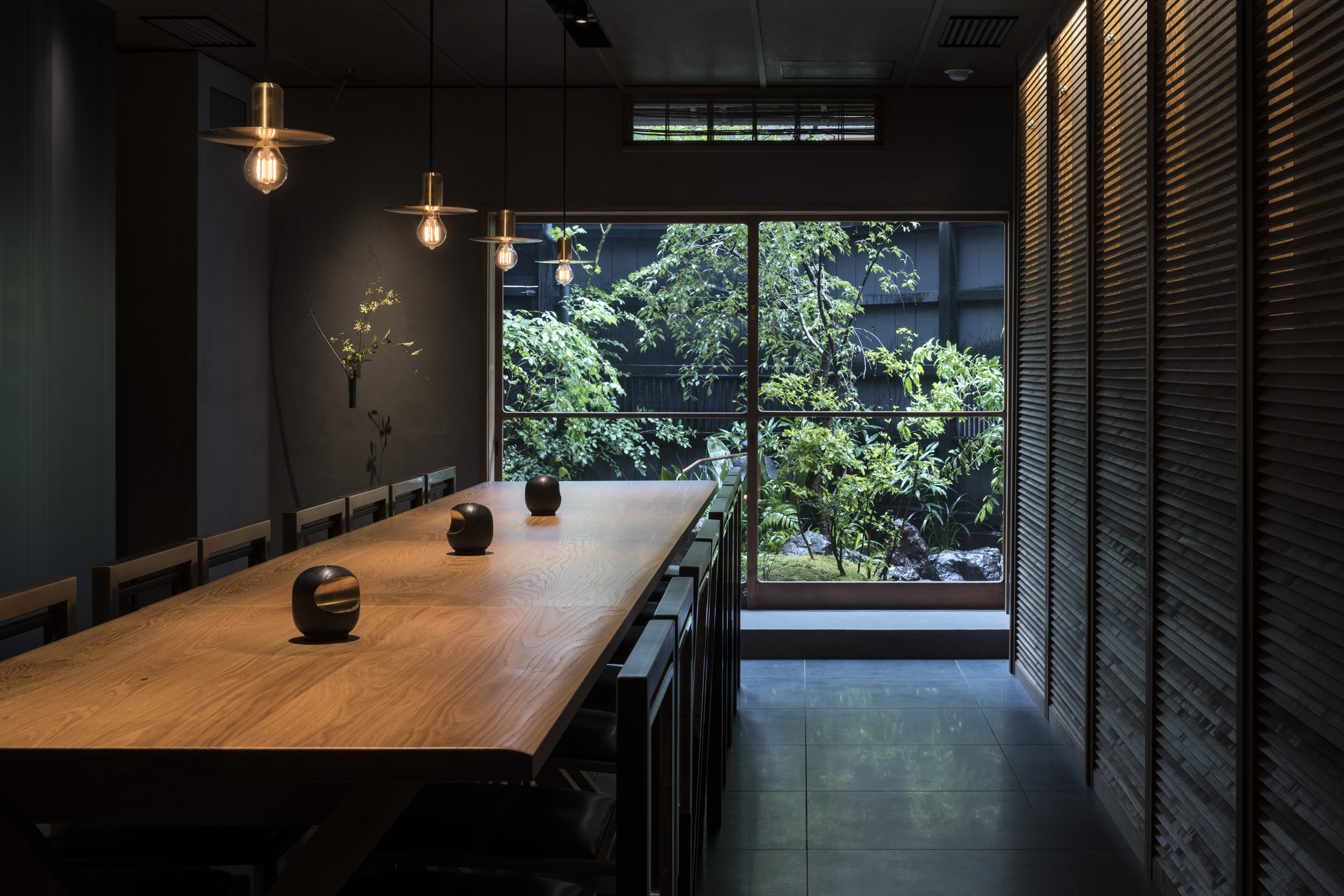 Renovating the house in modern-day Tokyo involved extensive restoration work on the exterior of the building and a full overhaul of the interior space. In August, Trunk House opened its doors, welcoming guests into a world of bespoke design pieces, original artworks and traditional Japanese residential living.
Renovating the house in modern-day Tokyo involved extensive restoration work on the exterior of the building and a full overhaul of the interior space. In August, Trunk House opened its doors, welcoming guests into a world of bespoke design pieces, original artworks and traditional Japanese residential living.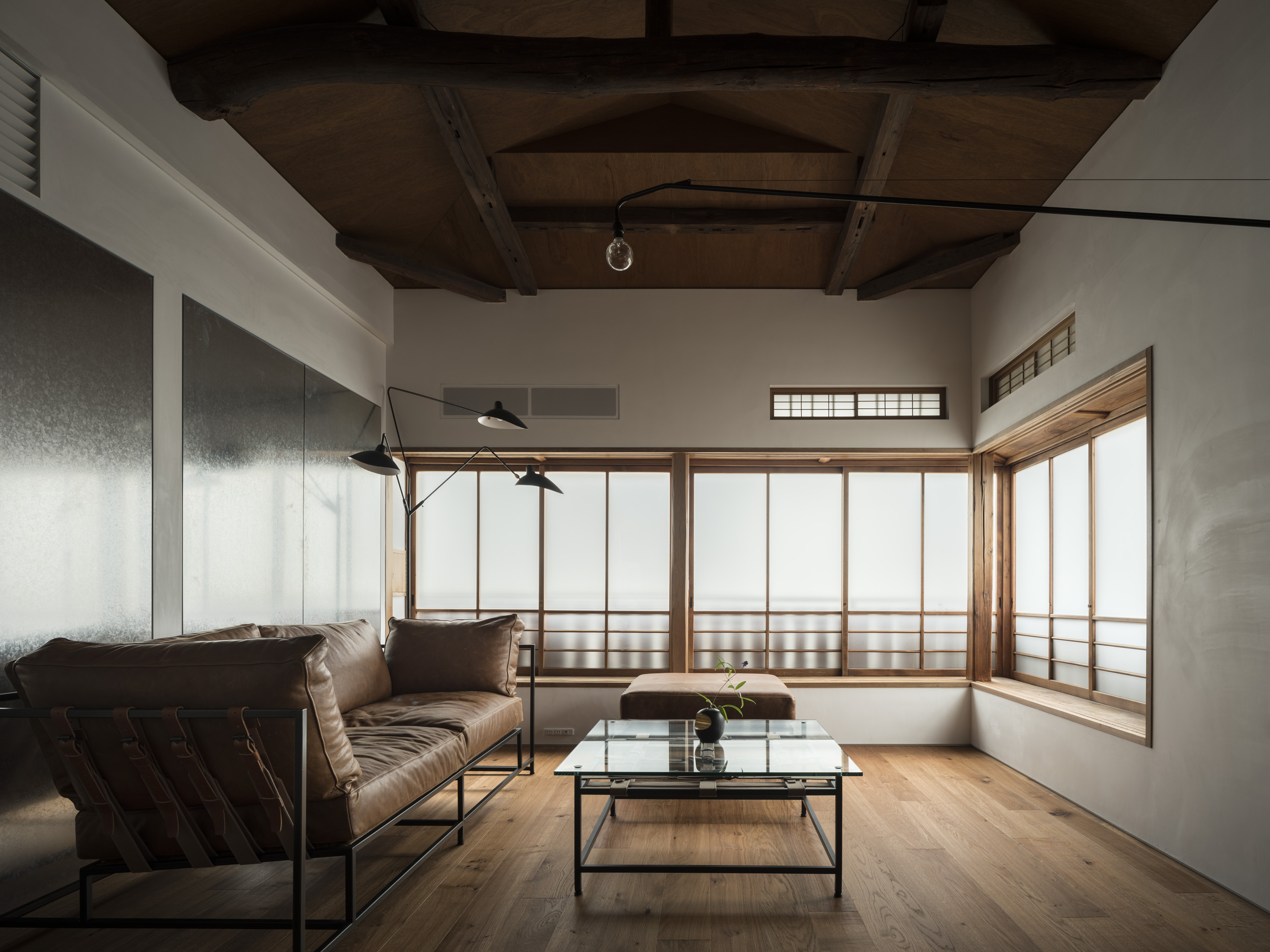 The Trunk House is a continuation of the concept of Trunk Hotel but on a smaller scale. The one-bedroom property can accommodate a party of four overnight, although there’s space for up to 30 guests in the social areas and in what the team calls “Japan’s smallest Disco”.
The Trunk House is a continuation of the concept of Trunk Hotel but on a smaller scale. The one-bedroom property can accommodate a party of four overnight, although there’s space for up to 30 guests in the social areas and in what the team calls “Japan’s smallest Disco”. 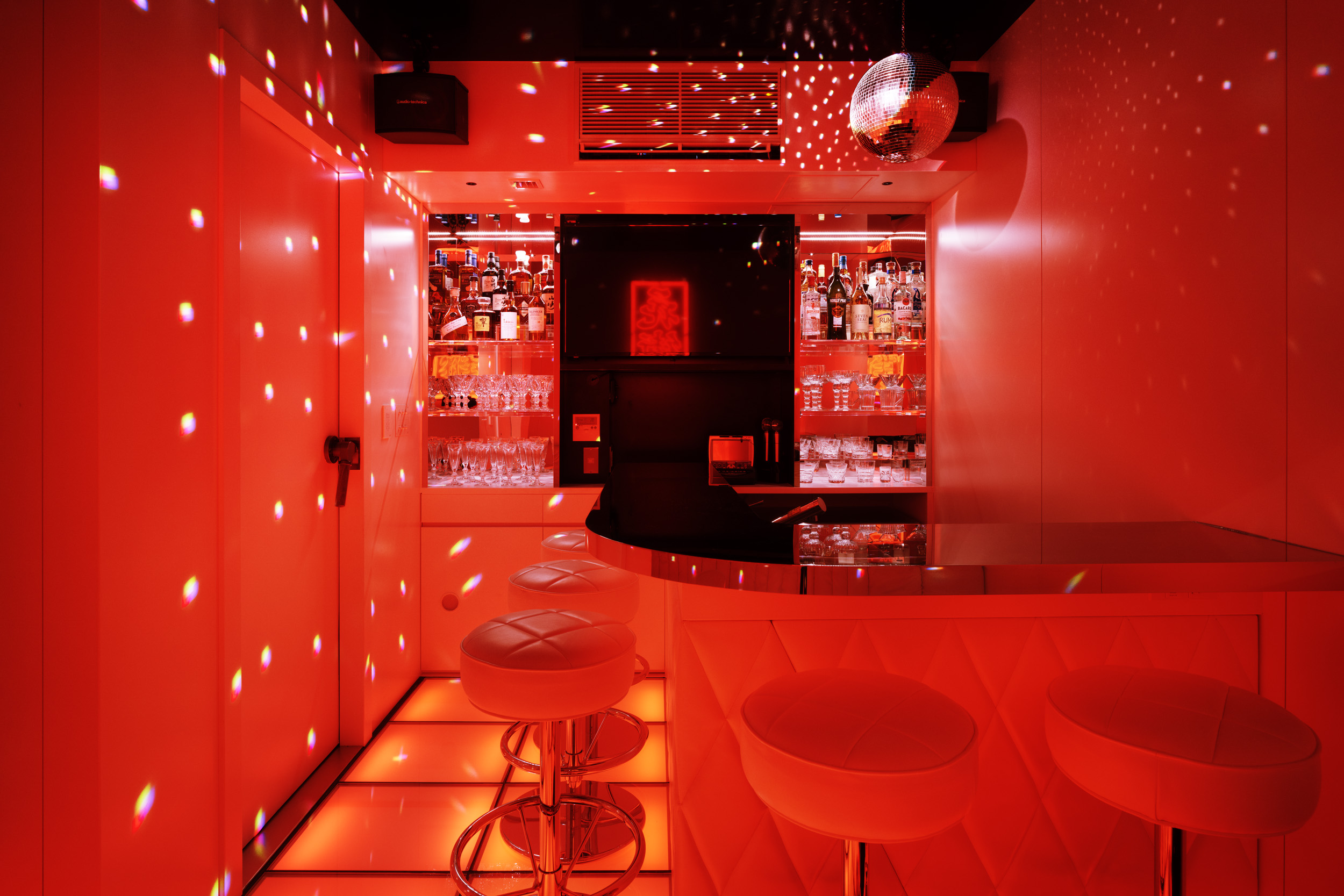 There’s exclusivity in the experience – a private butler service ensures the needs of guests are met and a personal culinary team is on-hand to prepare authentic Japanese cuisine.
There’s exclusivity in the experience – a private butler service ensures the needs of guests are met and a personal culinary team is on-hand to prepare authentic Japanese cuisine.
What sets the Trunk brand apart is its commitment to exhibit and express the spirit of the neighbourhood. With his latest concept, Nojiri sought to offer a private, bespoke hospitality experience.
The exterior denotes a traditional geisha house – the entrance cast in stone, genkan-style. Inside, nods are given to tradition in the form of grey mortar walls, paper screens, wood-panelled ceilings and stained-glass windows. 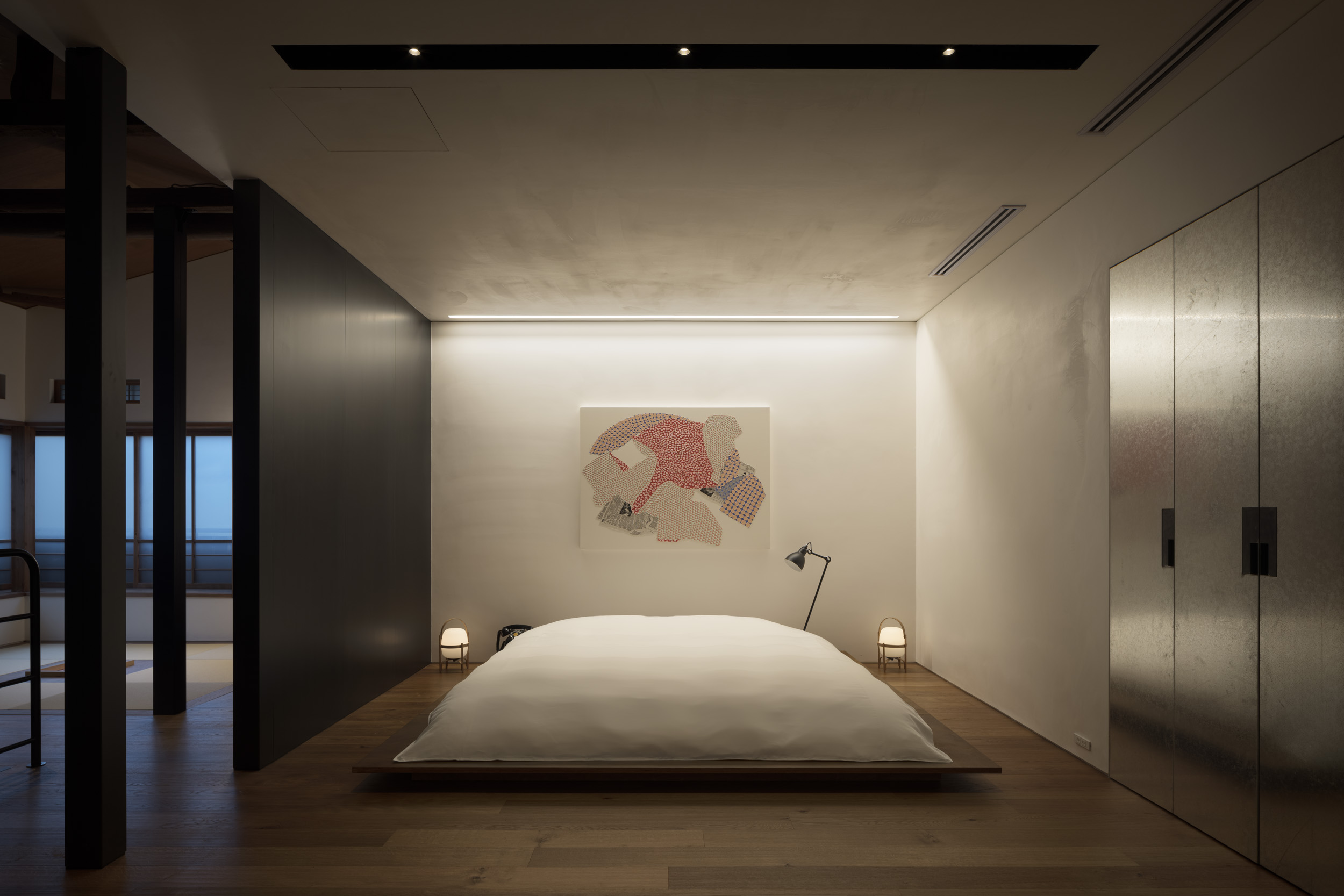 But contemporary Tokyo is also resident – in the marble-top counters, the ceramic bowls crafted by contemporary American artist Tom Sachs, and in the metal-framed leather sofas in the living room.
But contemporary Tokyo is also resident – in the marble-top counters, the ceramic bowls crafted by contemporary American artist Tom Sachs, and in the metal-framed leather sofas in the living room.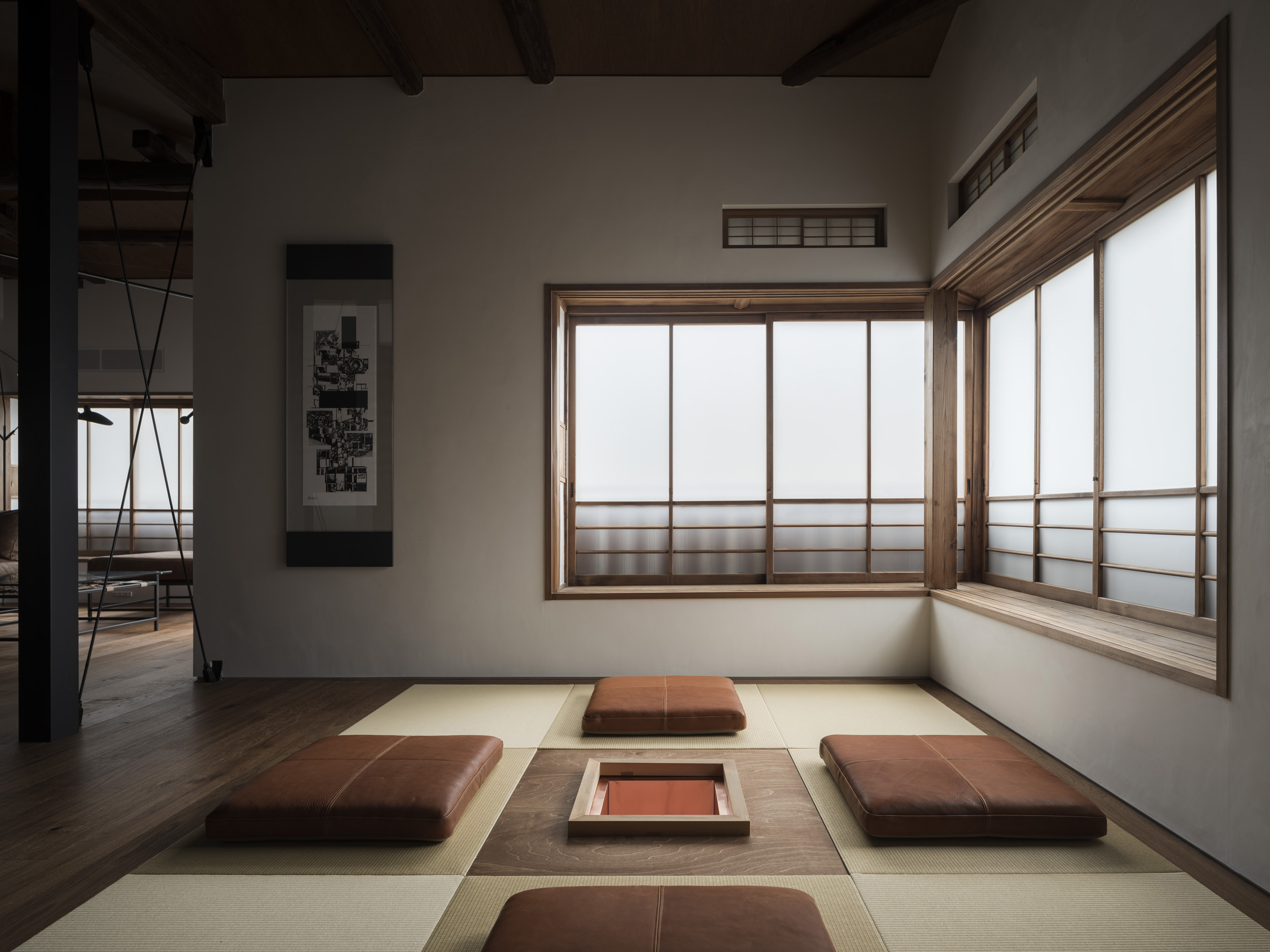 Everywhere, there is a fusion of old and new. A 1950 Jean Prouvé Potence wall lamp casts light over tatami mats and leather floor cushions. It is a space created with thought and intent.
Everywhere, there is a fusion of old and new. A 1950 Jean Prouvé Potence wall lamp casts light over tatami mats and leather floor cushions. It is a space created with thought and intent.
Central to Trunk (House) is socialising. Nojiri believes that Trunk can go beyond being a place to stay and become an agent for change. “Through Trunk, I wanted to provide a tasteful way of giving back as well as a means for people to do this in their daily life and not just after disasters,” Nojiri told Asia Tatler in an interview in February, referring to the tumultuous periods that followed the global financial crisis and the 2011 earthquake and tsunami in Japan.
“For instance, a great number of the products we use in the hotel are sourced from small local companies and charities that embrace an eco-friendly direction. Of course, as a hotel, ‘socialising’ also means fostering connections with others. At Trunk Hotel, we accept anyone and everyone, and promote the value of the human connection.”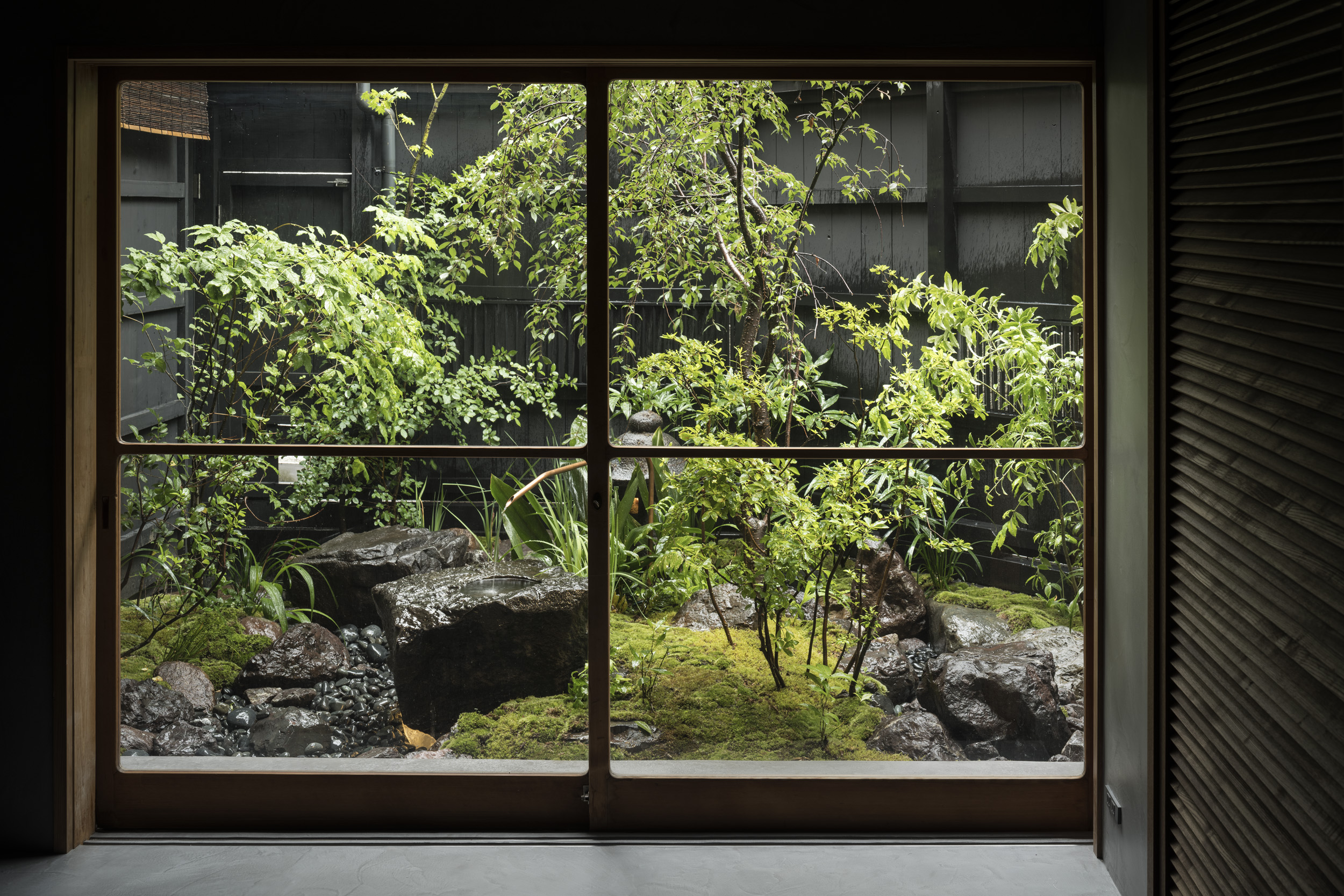 For guests, Trunk House offers a sanctuary from the hustle of the city beyond. It’s a space to take tea in the living room or relax in the private courtyard garden. Everything has been carefully curated, from the music, hand-picked by a critic, to the special menu of local and international dishes available from the open kitchen.
For guests, Trunk House offers a sanctuary from the hustle of the city beyond. It’s a space to take tea in the living room or relax in the private courtyard garden. Everything has been carefully curated, from the music, hand-picked by a critic, to the special menu of local and international dishes available from the open kitchen.
There’s an irori fireplace, a traditional sunken hearth, and tatami flooring where guests can sit sipping matcha tea and admire the work of local artist Chiaki Hirano, who specialises in the art of paper-cutting, or kirie.
Meanwhile, the bath area pays homage to Japan’s traditional public onsen – it is surrounded by shunga – images depicting sensual pleasures – printed on to white tiles by contemporary woodblock print artist Masumi Ishikawa.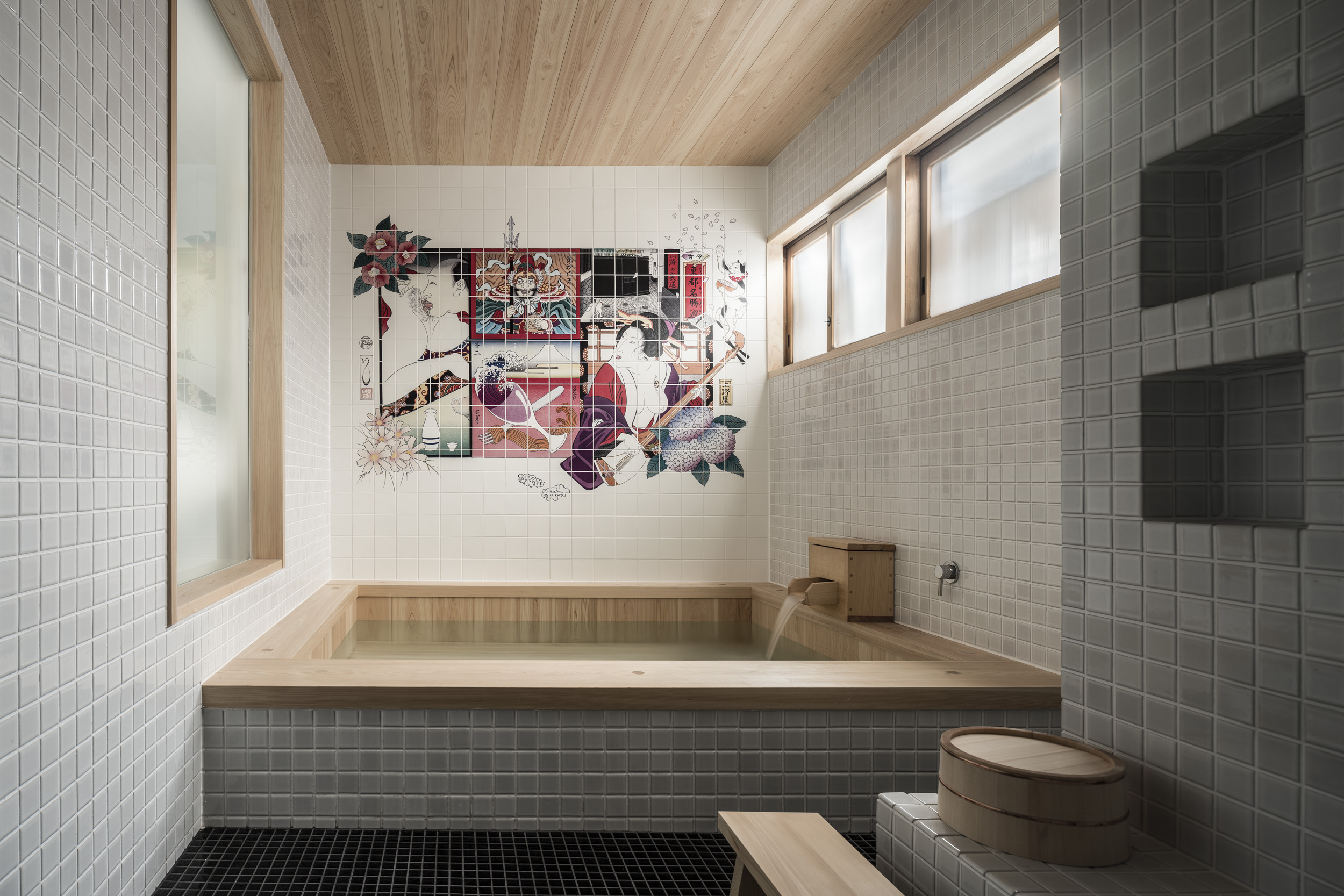 When guests can tear themselves away from the townhouse, there’s a world of stunning shrines and temples, stylish cafes and spectacular outdoors spaces to explore.
When guests can tear themselves away from the townhouse, there’s a world of stunning shrines and temples, stylish cafes and spectacular outdoors spaces to explore.
Affectionately known as “Little Kyoto in Tokyo”, Kagurazaka was once home to samurai residences, and today the neighbourhood retains the characteristics of the Edo period. Its rich culture and history has cemented the district as a favourite among Japan’s creative community.
The opening of Nojiri’s second property comes at an opportune moment for tourism to Japan. In 2018, more than 30 million international travellers visited the country – with the 2020 Tokyo Olympic Games around the corner, 40 million be achieved next year.
Rates for Trunk House begin at ¥500,000 (£3,600) per night for two people based upon exclusive hire of the whole space, and includes breakfast and free minibar (excluding alcohol).
